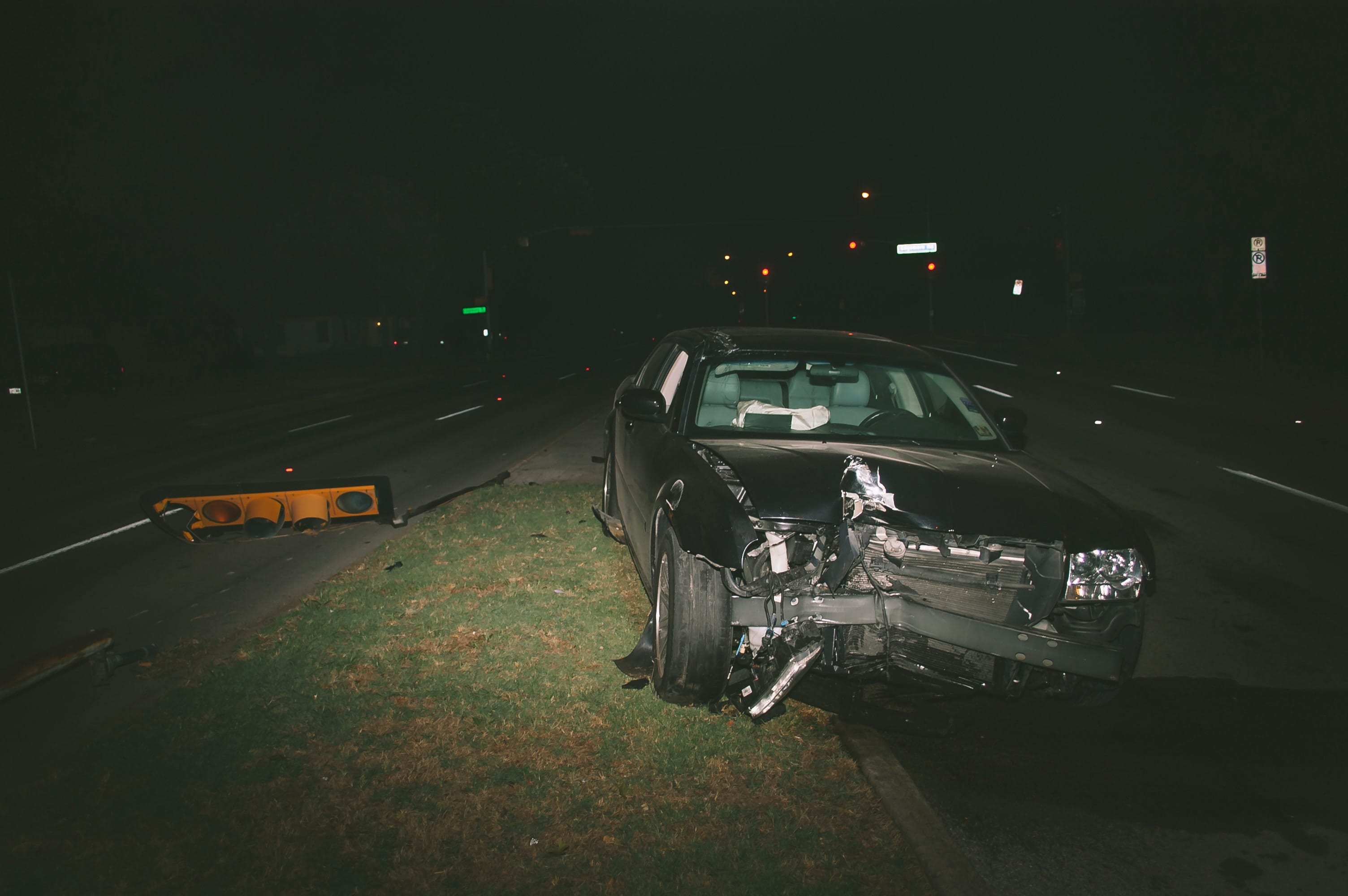Dealing with insurance companies can be a complex process. Remember that despite what you see on the tv, internet, and radio, an insurance companies’ goal is to make money, not pay injury claims.
One of the more complicated aspects following a car wreck is dealing with an insurance company, whether it is your insurance company or the other driver’s insurance company. When you are the victim of a catastrophic or traumatic event, like an auto collision, you don’t want to spend your time haggling with insurance companies to get the compensation you need for the medical bills, lost wages, and out-of-pocket expenses that have piled up. After you have been injured in a collision, your primary focus should be on your health—not dealing with an insurance company. If you need to file a personal injury or property damage claim, it’s important to understand the process and avoid the gamesmanship that insurance companies use so you can receive the money to help you recover medically and financially after a collision.
The U.S. insurance industry is one of the largest in the world, with net premiums totaling $1.4 trillion dollars in 2021. Insurance companies make money by collecting premiums, not by paying on claims. Even if you’ve been a loyal customer of the same insurance company for years and have never filed a claim, once you file a claim for an auto collision, the insurance company will forget your years of loyalty and the premiums you’ve paid. And they will do everything they can to pay you as little as possible on your claim.
Despite insurance companies’ enormous financial resources, countless people struggle to get the money they need to cover their medical bills, lost wages, and out-of-pocket expenses that inevitably arise after an accident. Fortunately, there are some steps you can take to increase the chances that you will recover the money you need. First, please consider hiring an attorney with experience handling car wrecks as quickly as possible after the collision and allow her to deal with the insurance company. But if you speak to an insurance company after the wreck, remember the following.
1. Be Prepared
Before contacting your insurance company, you’ll want to do the following:
Get medical care: After you’ve been in a wreck or sustained an injury, seeking immediate medical care is vital. Again, your health is the number one priority. The best way to make sure you recover from your injuries is to immediately seek medical help right after a collision. It also helps prevent injuries from getting worse.
Secondarily, if you delay in seeking medical treatment after a collision or there are gaps in your medical treatment after a collision, insurance companies who should pay for your damages will attempt to use the gap in treatment against you. The insurance company may claim that if your injuries are as severe as you say then you would not have waited to get treatment and there would be no gaps in treatment. The reality is, however, sometimes, your body is full of adrenaline after a collision, and you may not realize that you are injured for a day or two after the collision. If that happens, seek immediate medical attention as soon as you experience pain from the wreck.
Collect insurance information from others involved in the wreck: If someone else is legally responsible for your injuries stemming from the wreck, make sure to get his insurance information, preferably at the scene of the collision (but getting someone’s insurance information is secondary to getting immediate medical attention).
Gather details: Be as detail-oriented as possible when filing an insurance claim. Gather information of everyone involved in the wreck, including contact information, license plate numbers, insurance information. And keep detailed records of all injuries, damages, bills, pictures and videos from the scene, police reports, witness statements, and any other related documentation.
2. Know Your Rights Under Your Policy
An insurance policy is a contract between you and your insurance company (or between the person who caused the wreck and her insurance company). Before dealing with your insurance company, ensure you have a complete copy of your policy. Insurance companies like to make insurance policies very difficult to read but review your insurance policy carefully to understand the scope of your coverage and you and your insurance company’s obligations under the policy. Pay special attention to your declaration’s page, which outlines the amount of your benefits under the policy. For example, the declaration’s page will let you know if you have underinsurance/uninsured coverage, personal injury protection or medpay coverage, and collision coverage.
Reviewing the insurance policy is also beneficial because you need to know the requirements and procedures for filing a claim and what you must do after a collision. Familiarizing yourself with your policy can help limit misunderstandings and conflicts with your insurer. Again, consider hiring an attorney to help you understand your rights under your policy and attempt to get the other insurance policies that may come into play because of the collision, like the at-fault driver’s policy.
3. Hire an Attorney or at least Seek Legal Consultation
Though some personal injury claims can be settled without legal representation, personal injury attorneys can help take the burden of dealing with insurance companies off your back and allow you to focus on recovering from your injuries. Hiring a personal injury attorney may help you avoid dealing with an insurance company entirely.
Personal injury attorneys who handle car wreck cases are adept at dealing with insurance adjusters. They understand the gamesmanship insurance companies engage in. An attorney can help you avoid pitfalls that may prevent you from recovering benefits under your policy or the at-fault party’s insurance policy.
For example, insurance company adjusters from the at-fault party will often contact you shortly after the accident and try to get you to provide a recorded statement. That adjuster is not looking out for your best interest. They are looking out for the best interest of the at-fault party’s insurance company, which means paying you as little money as possible. During the recorded statement, the adjuster may ask confusing questions to try to get you to admit that you caused the wreck or that your damages are not as severe as you claim.
If you have a personal injury attorney who handles car wreck cases, she can help guide you through this process or help you avoid it altogether. But remember, your own insurance policy might impose obligations on you after a collision. For example, your insurance policy likely requires that you cooperate with your insurance company’s investigation of the collision, which may include giving a recorded statement. Even if that is the case, having an experienced attorney who can help prepare you for that statement and walk you through the process is wise.
It is common for insurance companies to deny claims or implement certain tactics that make it difficult for injured parties to get the money they deserve. For example, convincing you to provide a recorded statement that may be used against you or trick you into signing documents that may affect your rights down the road. A personal injury attorney can help you navigate the complex and sometimes adversarial process of dealing with insurance companies by protecting your rights.
4. Adhere to the Timelines in Your Insurance Policy

Most insurance policies also require claimants to report their claims and submit information within a specific timeline. Prompt reporting of injuries and filing claims timely helps preserve your rights under your policy. For example, if you are at fault in the collision, your insurance company should provide you with a lawyer and pay damages up to the limits of your policy. Therefore, it is important to notify the insurance company of the collision otherwise, they may claim that you did not comply with the insurance policy’s requirements and try to avoid defending you or paying on the claim.
5. Record Information
Keep a record of each conversation you have with an insurance company representative. Write down the name of the insurance company, the phone number, and the company representative you speak with. Document the date and time of your call and any information you are given. If you’re communicating with an insurance company via email, keep all of your emails in a designated folder so they are easy to access. Remember to be cautious about all emails because everything you write in an email may show up later, and the insurance company or its lawyer may try to use that email against you.
Dealing with insurance companies can be a complex process. Remember that despite what you see on the tv, internet, and radio, an insurance companies’ goal is to make money, not pay injury claims. It’s important to stay organized and be persistent. Following these tips, you can help increase your chances of receiving the compensation you deserve.


Join the conversation!